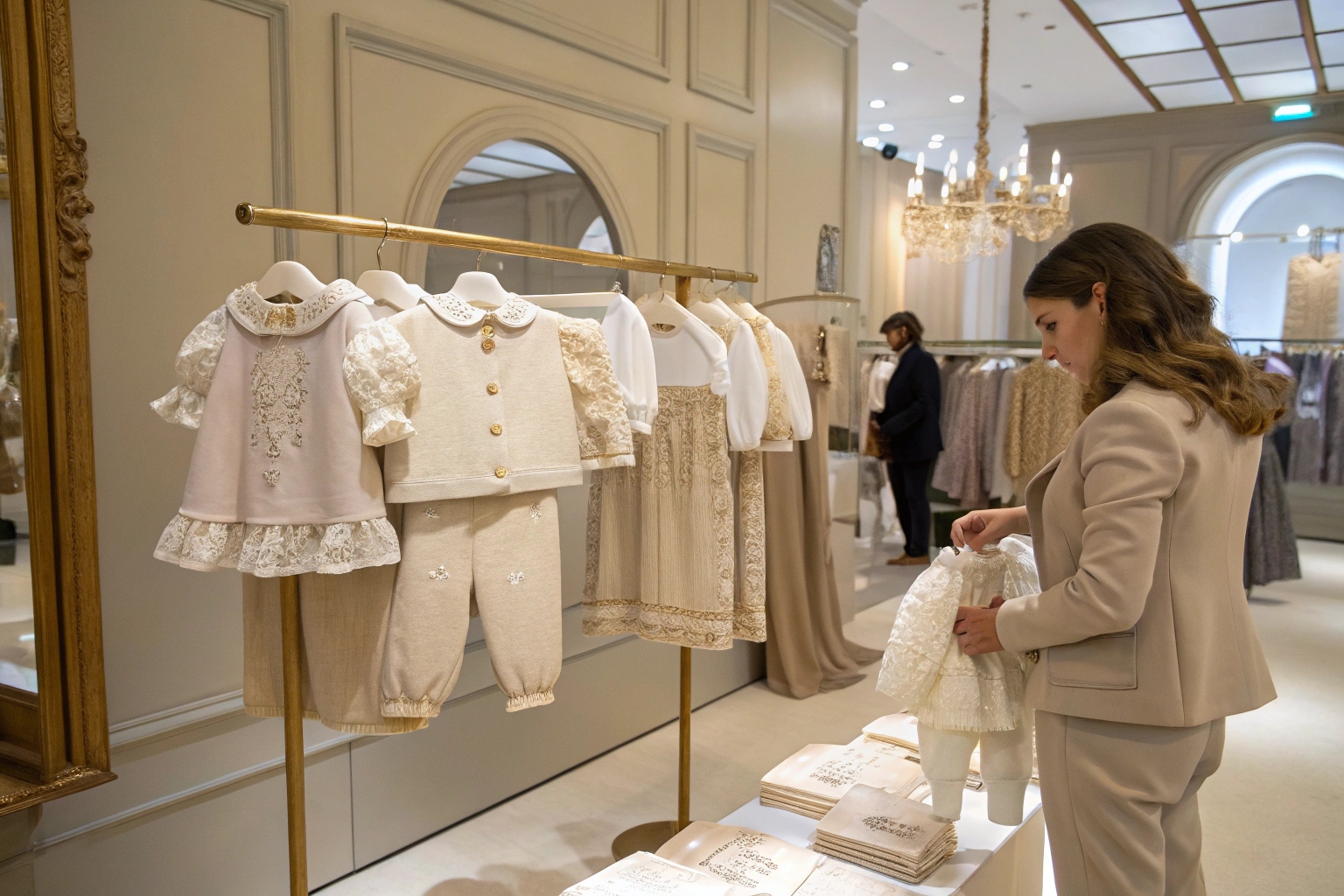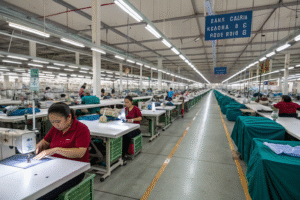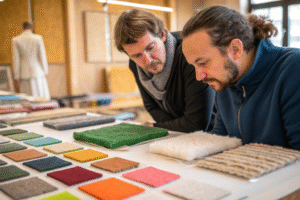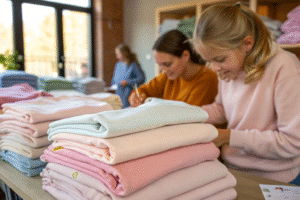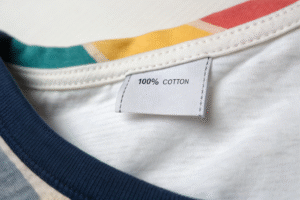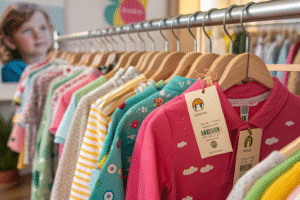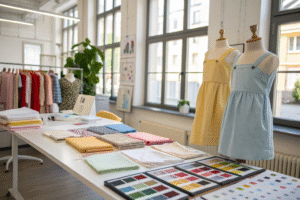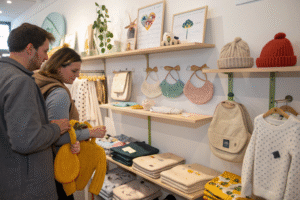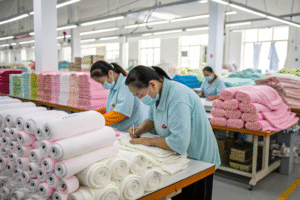New parents and brand buyers alike often struggle to source baby clothes that feel soft, look stylish, and hold up after washing.
You can get the finest quality baby clothes from luxury babywear manufacturers in countries like Italy, Portugal, and China, especially those offering organic, OEKO-TEX-certified materials.
But knowing where to buy is just the start — you’ll also need to understand materials, certifications, and supplier behavior to make the right choice.
Which countries specialize in premium babywear?
Not every country has the same standards for quality baby garments. Some offer better craftsmanship, while others lead in natural fibers and dye safety.
Portugal, Italy, and Japan specialize in premium babywear due to their textile traditions, while China and India offer scalable luxury baby clothing production at competitive pricing.
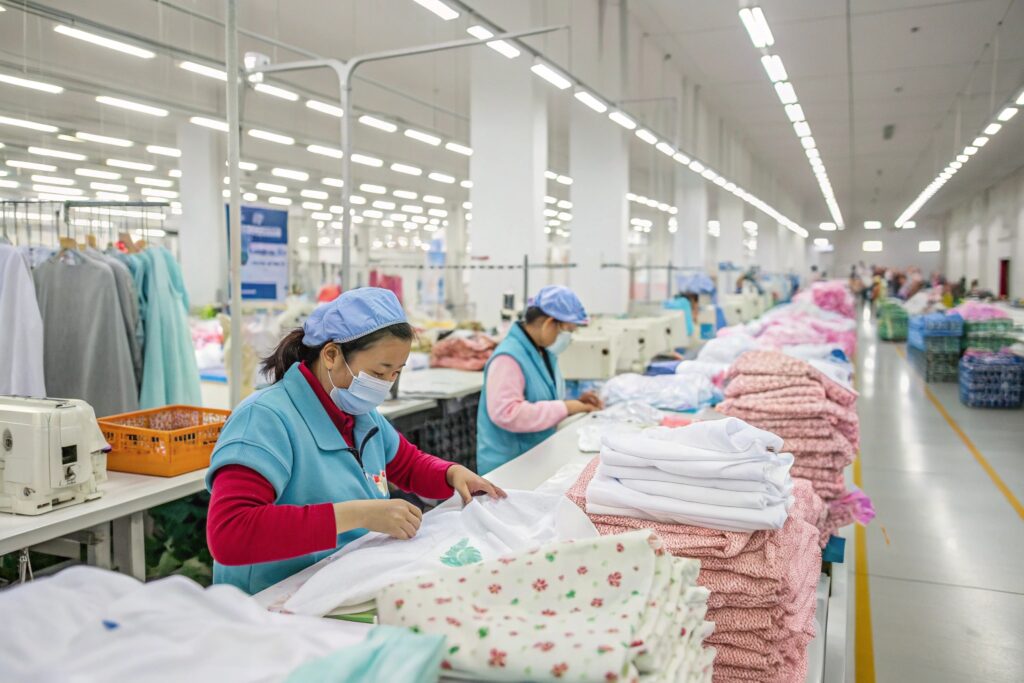
Leading Countries for Babywear Quality
| Country | Specialty | Why It’s Trusted |
|---|---|---|
| Portugal | Organic cotton, artisanal finish | Small batch luxury & EU standards |
| Italy | Fashion-forward babywear | High design aesthetics + heritage |
| Japan | Natural dye + technical textiles | Precision and skin-safe processes |
| China | Scalable, diverse styles | Cost-efficiency + fast turnaround |
| India | Soft cotton + hand embroidery | Eco-friendly + fair labor policies |
I’ve worked with both boutique European mills and large-scale Chinese factories. Both can deliver quality — if you know how to vet the right one.
Where to find luxury baby clothing manufacturers?
Most luxury babywear doesn’t come from retail names — it comes from silent factories that power dozens of boutique brands worldwide.
Luxury baby clothing manufacturers can be found in Portugal, Italy, and premium zones in China like Zhejiang and Guangdong. Look for suppliers who offer full customization, ethical sourcing, and small MOQs.
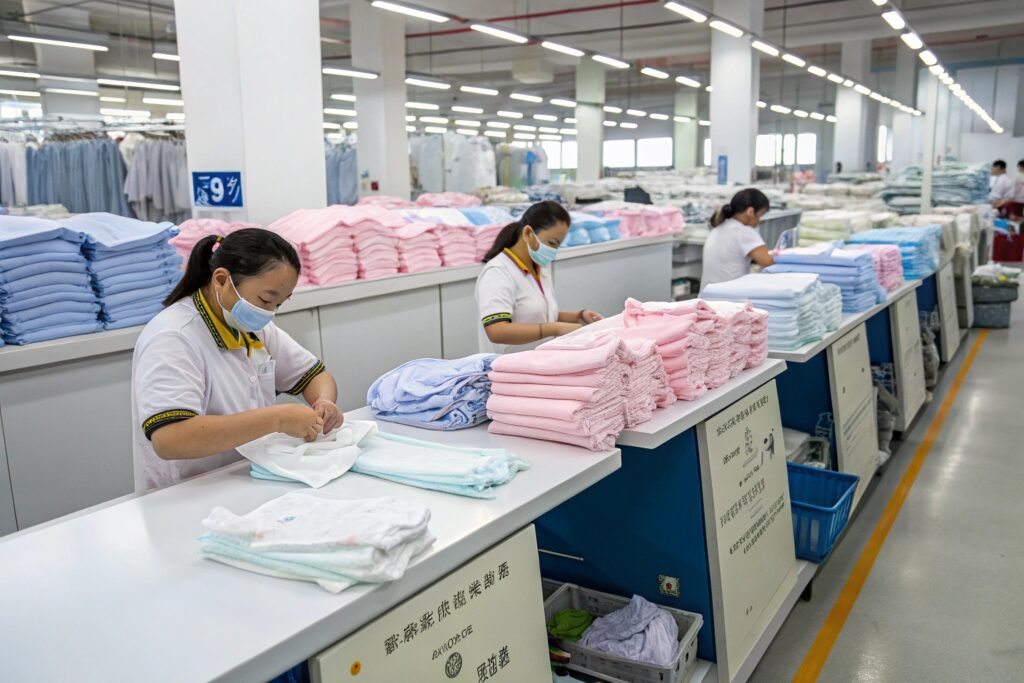
How I search for these manufacturers:
- Use niche B2B sites like Maison&Objet directory or Tradeshows like Pitti Bimbo
- Google search terms like “custom organic babywear factory Portugal”
- Ask for OEKO-TEX, GOTS, or BSCI certification
- Request actual production samples, not stock images
Remember, many high-end factories don’t even list publicly. You may have to reach out through an agent, or meet them at an international sourcing show.
Are organic baby clothes better in quality?
Some people associate “organic” with just health benefits. But in reality, it affects durability, skin feel, and breathability — all key to quality perception.
Yes, organic baby clothes offer better quality due to their soft touch, chemical-free processing, and long-term wearability — especially when certified by GOTS or OEKO-TEX.
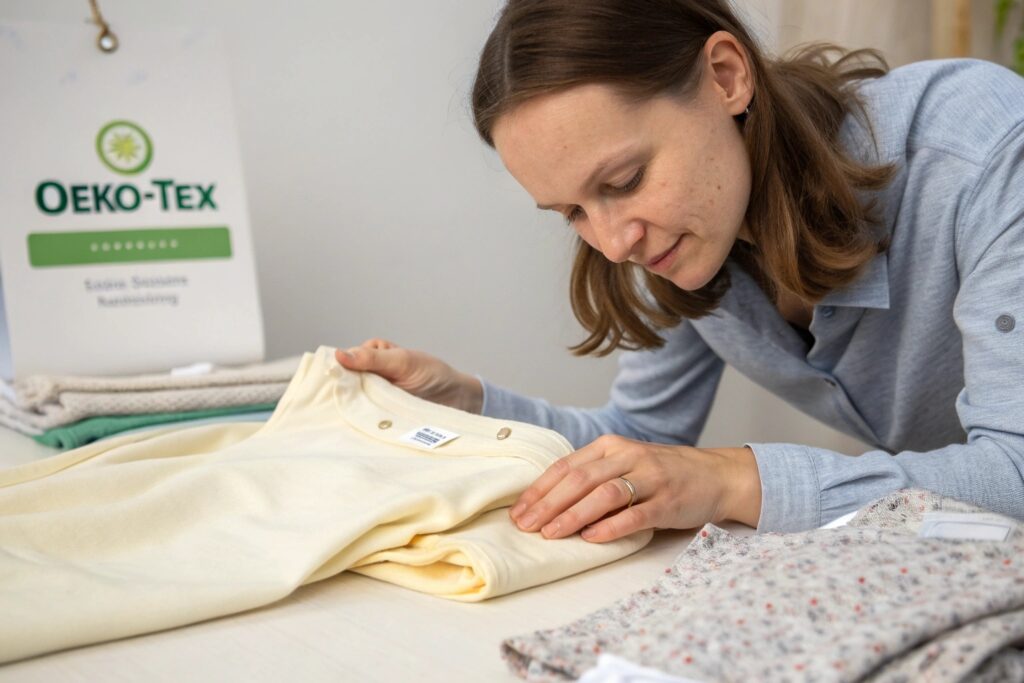
What makes organic better?
- No pesticides: Less risk of irritation for sensitive baby skin
- Stronger fibers: No chemical weakening during processing
- Sustainable dyeing: Color doesn’t fade or bleed easily
- Certifications: Proof of ethical, clean production
From a business standpoint, I’ve also seen that “organic” babywear allows for higher markups, better conversion rates, and fewer returns due to irritation complaints.
How to choose high-end newborn apparel suppliers?
Even if you know what country or material to look for, finding the right supplier takes more than comparing prices. It takes strategy.
To choose high-end newborn apparel suppliers, prioritize those who offer transparency, certified fabrics, flexible customization, and strong sample quality.
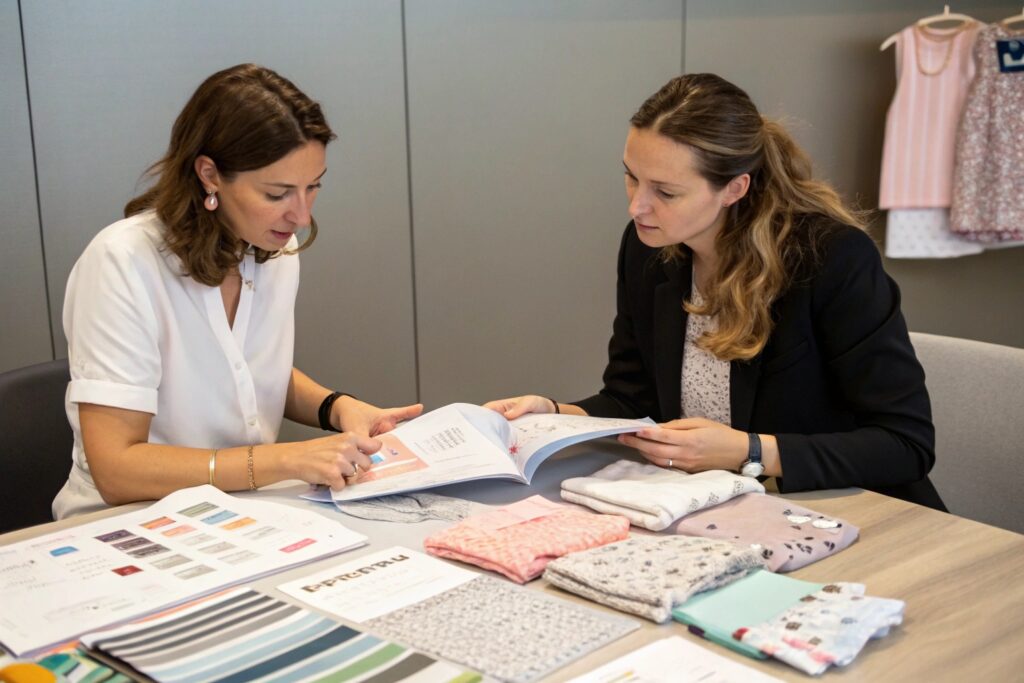
My go-to checklist for premium babywear suppliers:
- Do they own or control the sewing line?
- Can they offer low MOQ and sampling service?
- Do they provide fabric composition reports?
- Can they customize trims like snaps, tags, or labels?
- How fast do they respond, and in what detail?
High-end baby clothing buyers don’t just look for softness — they look for consistency, certified safety, and the ability to create exclusive lines. That’s why I favor factories that combine organic fabric sourcing with small-batch production.
Conclusion
Whether you’re a boutique brand owner or sourcing for retail, premium baby clothes come from factories that combine certified fabrics, skilled labor, and detailed communication.

